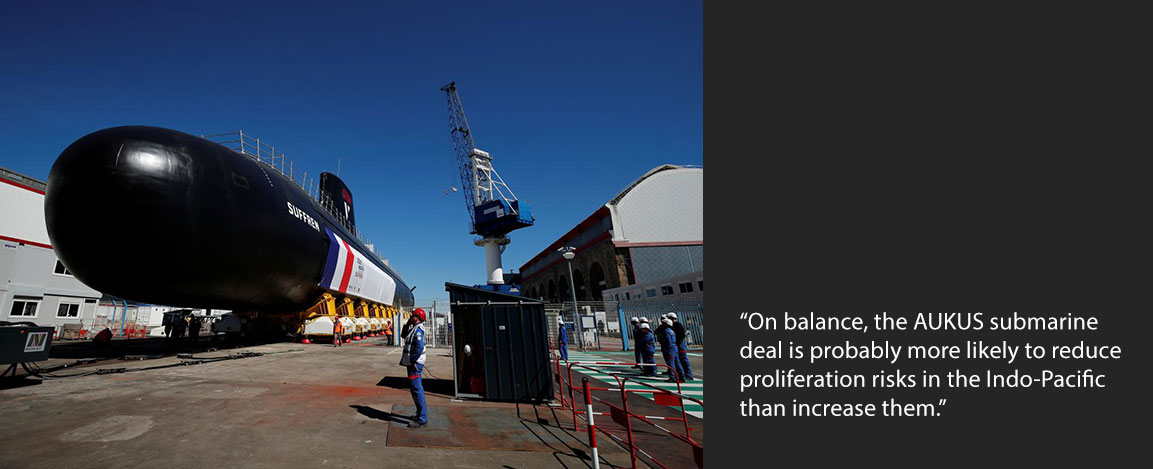"The benefits of AUKUS outweigh the proliferation risks," says Caitlin Talmadge, associate professor of security studies at the Edmund A Walsh School of Foreign Service at Georgetown University. Talmadge is a research affiliate of the MIT Security Studies. Read the full article here in Foreign Affairs.
The United States’ decision to sell nuclear-powered submarines to Australia is coming under fire from some experts on nuclear nonproliferation. These critics fear that sharing the sensitive nuclear reactor technology needed to propel such vessels will set a dangerous precedent and open a new pathway for states to acquire nuclear weapons.
These concerns are overblown. Furthermore, they are outweighed by the clear security benefits of the deal—in particular, the fact that the sale will enhance Washington’s ability to counter Beijing both militarily and politically. There are significant military advantages to deploying nuclear-powered submarines, as opposed to the conventionally powered submarines Canberra had originally agreed to buy from France. The United States also has a number of ways to manage any proliferation risks, and it likely will do so in the coming months and years as the sale is finalized. If anything, partnering closely with Australia should help reduce one of the potential causes of future nuclear proliferation in Asia: the perception that the United States cannot or will not defend its allies from China.




